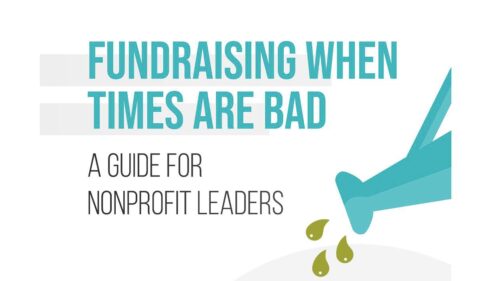Never one to indulge in understatement, nineteenth-century Catholic philosopher Orestes Brownson once claimed that Satan’s “favorite guise in modern times is that of philanthropy”…
Warren Buffett, George Soros, Bill Gates, the Koch brothers, Oprah. All famous for their success in business; all famous, in part, for their philanthropy; all in league with the devil.[1]
Such, presumably, would be the judgment of the nineteenth-century Catholic philosopher Orestes Brownson, were he to arise from his eternal resting place (underneath the Basilica of the Sacred Heart at the University of Notre Dame) to write one last 20,000-word article on the topic.
Never one to indulge in understatement, Brownson claimed that Satan’s “favorite guise in modern times is that of philanthropy.”[2] He nominated Robespierre as one of eighteenth-century philanthropy’s “most ardent apostles.”[3] He wrote that, during the French Revolution, it was “under the influence of philanthropy [that] Europe became one vast slaughterhouse; kings and nobles, bishops, priests and nuns, old men and young women, were dragged to the scaffold, and the reign of love was drowned in torrents of innocent blood.”[4]
We are not accustomed, when it comes to philanthropy, to this kind of talk—or, really, to any kind of negativity at all. For most people, philanthropy ranks with puppies and summer vacations in terms of its positive connotations. Our great philanthropists are feted, admired, revered. We give them awards, and they give us checks. They represent the good old-fashioned American Dream. Philanthropists are, in short, what we think we aspire to be.
What could be wrong with philanthropy?
As Brownson pointed out, philanthropy’s roots lie in a considered, deliberate rejection of mere "charity." Besides a rather embarrassing association with traditional Christianity—where it was regarded as a supernatural virtue that could only be fully attained with the aid of grace—to eighteenth- and nineteenth-century reformers, "charity" was associated with the reactionary view that social evils were ultimately rooted in human hearts. Philanthropy located such evils in the head. They were thus amenable to amelioration via technological reason, given sufficient resources. That is why, explained Brownson, “philanthropy went to work to reform—on a large scale; for philanthropy scorns small beginnings, and proposes always to commence operations on the masses.”[5]
An orientation toward charity rather than philanthropy might lead one to be too ready to accept certain kinds of suffering and injustice as inevitable, Brownson conceded. But the philanthropic solution—throwing off the shackles of charity to pursue systemic social change—often led, at least in its purest forms, to even more widespread suffering and graver injustice. “Philanthropy, when acting alone,” Brownson concluded, “seldom fails to make matters worse.”[6] To his Christian way of thinking, the point of charity was to move hearts toward God, and thus toward neighbors. That is how real reform proceeds.
Brownson realized that this approach lacked a certain glamor. “Charity . . . deals not with committees, attends not meetings, and is seen not on platforms, moving or seconding high-sounding ‘resolutions,’ but addresses herself to the heart of man; for charity is not puffed up, and seeks not to make a noise in the world.”[7]
* * * * *
Although the usage of the term philanthropy has undergone some change since Brownson wrote in the middle of the nineteenth century, it is still true that “philanthropy scorns small beginnings, and proposes always to commence operations on the masses.”
Today’s Big Philanthropy tends to substitute humanity in general for real, individual human beings as the primary object of benevolence. This idea lies at the core of the development of the first modern philanthropic foundations. As William Schambra, among others, has shown, from their beginnings in the late 1800s and early 1900s, the major charitable foundations (Russell Sage, Rockefeller, and Carnegie) and their progenitors consciously sought to abandon old-fashioned attempts to alleviate immediate distress for a more focused scientific, expert-driven approach that would provide permanent solutions to vexing social problems (via williams). At its creation, the Rockefeller Foundation devoted itself to serving the “wellbeing of mankind throughout the world.” Rockefeller himself insisted that “the best philanthropy involves a search for cause, an attempt to cure evils at their source.”[8]
For the wealthy simply to provide aid to those particular men, women, and children who needed it was no longer good enough. It was time to change the world—just as Rockefeller and the other captains of commerce who started many of these foundations had seemingly done with their railroad, oil, munitions, and other business ventures. It was time to attack problems like crime and disease at their roots. Schambra has shown that eugenics and sterilization programs were vigorously funded for decades by many large foundations precisely because such programs were prototypically “philanthropic” in their focus on the elimination of poverty rather than on helping real, existing poor people.[9]
In this intellectual milieu the term “charity” gradually became discredited. It came to refer, for the most part, to small, reactive, and/or nonstrategic efforts to assist the suffering. Charity was the province of simpletons. Sophisticated entrepreneurs, professionals, and scientific experts engaged in philanthropy.
And so it remains today. As a spokeswoman for the $37-billion Bill and Melinda Gates Foundation explained when pressed about why the foundation chose not to help dozens of homeless people sleeping outside its $500 million Seattle headquarters, “We’re trying to move upstream to a systems level to either prevent family homelessness before it happens or to end it as soon as possible after it happens.”[10] Only the naïve would walk outside and help the homeless men and women shivering right there!
The family resemblance between the modern concept of philanthropy and the great ideologies of the twentieth century is difficult to deny. As the economist Wilhelm Röpke pointed out in the middle of the twentieth century, it was “frequently in the name of abstract, general philanthropy” that “fanatical and intolerant mass hatred . . . such as national hatred, class hatred, and race hatred” was justified and excused.[11]
Aleksandr Solzhenitsyn understood this acutely. The narrator of his short story “Ego,” set during the Russian Revolution, describes how the practical, small-scale social work of a man named Pavel Vasilyevich Ektov, “a natural-born activist in the rural cooperative movement,” was derided by the Leninists then coming to power:
[Pavel] never took up any of the grandiose, earth- shaking causes of the time. In order to keep true to his beliefs, he had to engage in some bitter debates on how best to remake the life around him and to resist the temptations and withstand the rebukes of the revolutionary democrats: devoting himself to social change by promoting only “small deeds” was trivial; he was not merely squandering his energy on useless work, he was betraying the whole of humanity for the sake of a few people around him; it was cheap philanthropy that would lead to no great end. Now, they said, we have found the path to the universal salvation of humanity; now we have the actual key to achieving the ideal of happiness for all the people. And what can your petty notions of one person helping another and the simple easing of day-to-day tribulations achieve in comparison with that?
As the story moves forward, the peasants in Pavel’s Tambov Province are systematically robbed, raped, murdered, and executed en masse by the communists. Solzhenitsyn clearly wants us to consider whether there isn’t a connection between the communists’ view of Pavel’s charity and their bloody contempt for actual, flesh-and-blood human beings.[12]
The communists may be gone, but a similar contempt for “trivial” “small deeds” is conventional wisdom within a professional philanthropy industry that prefers to work at the “systems level.” The authors of the entirely representative Do More Than Give call for a new kind of “catalytic philanthropy” that produces “system-wide change.” But their predictable call for “proactive problem solvers” who “embrace a proactive, results-oriented, transformative mode of philanthropy” is nothing but mutton dressed as lamb.[13]
Fully fleshed out, that is one angle of critique with which Big Philanthropy should have to contend. Another, related, angle might start with questions such as this: How is it that we can have a $300 billion philanthropy sector—a sector that has almost tripled in size, adjusted for inflation, since 1970—at the same time that our civic life has eroded so much? Why has participation in community groups and public life declined so much over the same period of time—the last forty years or so—that professional philanthropy has risen so dramatically? What does this say about our priorities, about our beliefs concerning what we owe to those around us?
In short, how is it that the rise of professional philanthropy can be accompanied by such a steep decline in our civic culture? Something has gone wrong. And it seems possible that that something is rooted in the shift from personal charity to an impersonal, professionalized philanthropy that quixotically seeks to change the world.
Making charity more effective—making it better precisely as charity—is one thing.[14] To the extent that contemporary philanthropists and philanthropic institutions are engaged in that project—and, to be fair, many of them are, sometimes in spite of themselves—they make great contributions to our various communities.
But such efforts are not always valorized by their professional peers. There is immense pressure to conform to the best practices identified as such by Big Philanthropy and its advisors. And those practices are often at odds with the deceptively complex, inescapably personal demands of charity and justice.
To give just one example: many larger foundations require their grantees to measure the results of their work, often along numerous dimensions and sometimes using prescribed metrics. Yet the most effective nonprofits are often small, locally situated, shoestring operations unable to meet burdensome assessment requirements. Besides, as Schambra points out, “most nonprofits have developed programs based on the immediate day-to-day encounter with the specific, idiosyncratic communities they serve, hence exhibiting the almost infinite variety of those communities,” and thus are often faced with prescribed metrics that ill fit their work. Throw in the problem that different funders use “different languages and metric frameworks,” and you have created a recipe whereby small (and socially valuable) nonprofits find it exceedingly difficult to win grants no matter how much good they may be doing on the ground.[15]
* * * * *
Instead of the grandiose projects and utopian visions too often pursued by today’s Professional or Big Philanthropy—usually in league with highly centralized, bureaucratic, impersonal government—we need a smaller, humbler philanthropy. A philanthropy of accountability and human relationships. A philanthropy of place. Let us call this alternative vision "philanthrolocalism."
Philanthrolocalism is a philosophy of giving that prioritizes the use of resources to help one’s own place, including one’s neighbors, community members, churches, businesses, cultural institutions, civic associations, and ecology. Philanthrolocalists seek to deploy resources to promote human flourishing and civic life in their own local communities. That—not changing the world via systemic management—is their primary concern. If philanthrolocalism sounds as if it is rooted in the idea of old-fashioned charity, that is no accident.
The first and most basic principle of philanthrolocalism is the common insight that we are not our own. Affirmed in the twentieth century by the Canadian philosopher George Parkin Grant, this insight finds perennial expression in our philosophical heritage and in every one of the world’s great religious and wisdom traditions. It means that every one of us owes, in part, our achievements, successes, prosperity, even our very being to others. Most of us intuit this, which is why our natural response to success includes an expression of gratitude to those who helped make it possible.
There is no such thing (despite the insistence of countless business biographies) as a "self-made man." We are the products of others: of the ancestors and families who gave us life and raised us, of the neighborhoods and communities and towns and cities that helped form us, of the agricultural and ecological contexts that have sustained us, of the schools and teachers that have educated us, of the artists and musicians who have provided us with transcendent insights, of the religious institutions that have taught us about self-limitation and the divine.
The philanthrolocalist acknowledges the fact that we do not make ourselves. Most people, in fact, naturally wish to give back to the people and places that helped to form them. Philanthrolocalism affirms and encourages this completely natural and human desire, rather than belittling it or sneering at it as the culture of Big Philanthropy too often does. Financially supporting our own places is one way in which we can acknowledge and express our gratitude to that which has made us what and who we are—and to that which continues to sustain us.
A second philanthrolocalist principle is that we have a primary responsibility to look after what is closest to us. Certain obligations and duties are not chosen but are ours by reason of natural birth and propinquity. That may not seem fair, but it is still something that we all instinctively understand, even when we rebel against it.
These two principles are important, because contemporary philanthropists often tend to think of themselves as having no real obligations at all. They fret about having no real guide for their giving. Recognizing this purported conundrum, authors Thomas Tierney and Joel Fleishman, in their book Give Smart, call on philanthropists to be accountable to self-imposed “excellence.” Not, one notes, to the moral obligations that are theirs by virtue of the natural local communities to which they belong by birth (and, perhaps we could say, providence).
A third principle consists in a recognition that the forces of modern life have conspired to fragment and weaken many, if not most, local communities. Industrialization, globalization, mass culture, modern warfare, and geographic mobility, to name a few factors, have enriched the lives of a few fortunate places while depleting the vitality of many, many others. Giving locally is one way in which we can help rebuild communities across America, counteracting many of the trends that have weakened American democracy and created a very real kind of social injustice.
Of course, the prioritization of local giving may be denigrated by the philanthropy industry because of a prejudice against rootedness. Big Philanthropy executives are often suspicious of local communities. They tend, not infrequently, to view such communities as bastions of racism, sexism, fundamentalism, and generally dangerous narrow-mindedness. The philanthropist’s role becomes that of weakening communities. For example, Tachi Yamada, president of the Gates Foundation’s Global Health Initiative, was asked by the New York Times in 2010 what he looked for in new hires. His answer was revealing:
I’ve made an observation about people. There are people who have moved. Take somebody who’s a child of an Army officer— they will have moved ten times in their lives. And then there are people who’ve been born and raised and educated and employed in one town their whole lives. Who do you think is willing to change? I think, in this modern world, you really have to be sure that your work force has the experience of being elsewhere. That experience then has the ability to ensure that you will be comfortable with change.[16]
There are, however, certain unique advantages to be gained by long habitation in a particular place, not the least of which are complex knowledge and affection. Why would you care deeply about a place you intend to leave at the next good opportunity? For Yamada and those like-minded, the human attachments that come with such a life make for bad philanthropic foundations—and probably for a bad “global citizen” as well.
This suspicion of real and concrete local communities is one reason Big Philanthropy stands opposed to philanthrolocalism. When focus is on local giving, individual donors and charitable foundations tend not to need much guidance from philanthropic experts. It’s easier to spot local needs, to evaluate which local organizations are most effective, and to assess the impact of one’s local giving (especially if you’ve been living in one place for a while), than it is to do any of these things with respect to national and international groups. Sophisticated metrics showing impact become luxuries, not necessities. The questions that are asked when one is giving locally also tend to be less abstract—and therefore more readily answerable on the basis of everyday logic and common sense.
* * * * *
To practice philanthrolocalism—I would call it "charity" if I thought it would get a hearing—requires no special training or adherence to some secret teaching. When you give locally, to whatever organization, institution, or cause you wish, you are practicing philanthrolocalism. The primary obstacle to practicing philanthrolocalism, in fact, may be a sense that what you are doing is not “important” or “strategic” enough—that local giving is for the unsophisticated. To be a philanthrolocalist, you must educate yourself out of the anti-localist prejudices that pervade American education and culture, and relearn the natural human language and sentiments of place.
If we are to rebuild our communities and renew our civic culture, we need more people to ask themselves the right questions before giving, questions inspired by love— charity, caritas—rather than by ideological ambitions to remake the world.
[1] This essay appears in the Fall 2014 issue of Communio: International Catholic Review. It is reprinted here by permission.
[2] Orestes Brownson, The American Republic: Its Constitution, Tendencies, and Destiny (New York: P. O’Shea, 1966), 184.
[3] Brownson’s Quarterly Review (January 1855): 48.
[4] Ibid., 49.
[5] Ibid., 48.
[6] Brownson’s Quarterly Review (April 1855): 193.
[7] Brownson’s Quarterly Review (January 1855): 49.
[8] Cited in William Schambra, “James Q. Wilson and ‘Broken Windows’ Philanthropy,” Philanthropy Daily (11 March 2012). For more of Schambra’s critique of modern philanthropy, see the articles cached here.
[9] Olivier Zunz covers some of this ground in his ultra-whiggish Philanthropy in America: A History (Princeton, NJ: Princeton University Press, 2011), but he tellingly declines to condemn the funding of eugenics programs by these and other charitable foundations.
[10] Stephanie Strom, “Donors Weigh the Ideals of Meaningful Giving,” The New York Times (1 November 2011).
[11] Wilhelm Röpke, A Humane Economy: The Social Framework of the Free Market (Wilmington, DE: ISI Books, 1998), 57.
[12] Solzhenitsyn’s story is included in the recently published collection, Apricot Jam (Berkeley, CA: Counterpoint, 2011).
[13] Leslie R. Crutchfield, John V. Kania, and Mark R. Kramer, Do More Than Give: The Six Practices of Donors Who Change the World (Indianapolis: Jossey-Bass, 2011).
[14] Charity, in the sense I mean here, essentially refers to both the spiritual and corporal works of mercy. It is the product of an inescapably theological vision, and in practicing it, we proclaim our belief that the world is not a machine that we are trying to fix through our voluntary giving, but a creation made, loved, and redeemed by God.
[15] William Schambra, “Mesmerized by Metrics: Is Philanthropy Engaging in Magical Thinking?” Nonprofit Quarterly (27 January 2012).
[16] Tachi Yamada, interview by Adam Bryant, “Talk to Me. I’ll Turn Off My Phone,” The New York Times (27 February 2010).







To sum up, Charity eliminates suffering. Philanthropy eliminates the sufferer.
The area around me is me.
If the area around me is vile, I am vile.
If I change what is around myself, I become change.
I become we.
Your article gave me some “food” for thought. Charity vs. Philanthropy. I will be re-thinking some of my donations and where they might be best used in the philanthropic spirit.